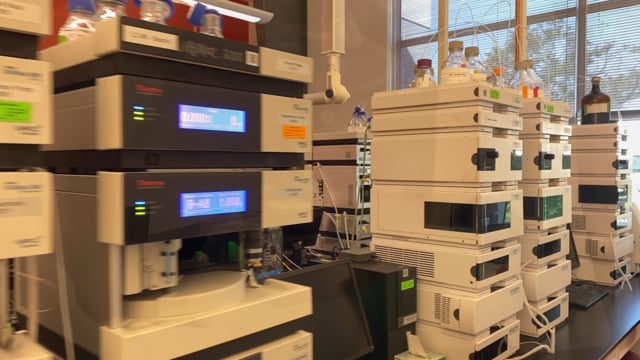Topical dermatological products have become increasingly popular among consumers in recent years, with a wide range of options available for various skin concerns. From anti-aging creams to acne treatments, these products offer a convenient and effective way to address common skin issues. However, creating and bringing these products to market is no easy feat. Pharmaceutical companies and scientific development firms face numerous challenges when it comes to regulatory requirements for topical dermatological products.
In this comprehensive guide, we will explore the complex world of regulatory requirements for topical dermatological products. Whether you are a pharmaceutical company looking to outsource product development or a scientific development firm seeking partnership with a laboratory, this article will provide valuable insights on navigating the regulations surrounding these types of products.
Understanding Regulatory Bodies
Before delving into specific requirements, it is essential to understand the different regulatory bodies involved in the approval process for topical dermatological products. In the United States, the Food and Drug Administration (FDA) is responsible for regulating and approving pharmaceuticals and medical devices. The FDA has specific guidelines in place for topical dermatological products under its Center for Drug Evaluation and Research (CDER). In addition to federal regulations, each state may have its own set of rules and guidelines that must be followed.
In Europe, the European Medicines Agency (EMA) oversees the regulation of pharmaceuticals across all member states of the European Union (EU). Similar to the FDA, they have specific guidelines for topical dermatological products under their Human Medicines Regulations division.
Complying with Good Manufacturing Practices (GMP)
One of the most critical aspects of meeting regulatory requirements for topical dermatological products is complying with Good Manufacturing Practices (GMP). GMP ensures that manufacturers follow strict quality control processes throughout all stages of production. This includes procurement of raw materials, testing methods, packaging materials, labeling procedures, storage conditions, and more.
Pharmaceutical companies and scientific development firms must adhere to GMP guidelines to ensure the safety, efficacy, and quality of their products. Failure to comply with GMP can result in product recalls, fines, and damage to a company’s reputation.
Product Development and Testing
The development of topical dermatological products involves several stages, including formula development, method development, packaging design, labeling requirements, and product testing. These are all crucial steps in the approval process for topical dermatological products.
Outsourcing these services to a laboratory like Dow Development Labs can provide numerous benefits for both pharmaceutical companies and scientific development firms. With expertise in formulation and method development as well as packaging and labeling compliance, Dow Development Labs can streamline the product development process while ensuring regulatory requirements are met.
Navigating Clinical Trials
Clinical trials play a significant role in the approval process for topical dermatological products. These trials involve testing the safety and efficacy of a product on human subjects before it can be brought to market. The FDA has specific guidelines for conducting clinical trials on topical dermatological products, including requirements for informed consent from participants and proper reporting of adverse events.
Working with an experienced laboratory like Dow Development Labs can help pharmaceutical companies navigate the complexities of clinical trials. Their team is well-versed in FDA guidelines for clinical trials and has experience conducting them efficiently while maintaining compliance.
Packaging and Labeling Requirements
Packaging plays a vital role in ensuring the safety and efficacy of topical dermatological products. It must be designed to protect the product from contamination or deterioration while also providing clear instructions for use. Additionally, labeling must meet strict guidelines regarding ingredients list, warning statements, directions for use, storage instructions, batch numbers, expiration dates, etc.
Dow Development Labs offers packaging design services that comply with all regulatory requirements while also considering aesthetic appeal for consumer appeal. They also have expertise in creating compliant labeling for topical dermatological products.
Importance of Compliance
Compliance with regulatory requirements is crucial not only for the approval of topical dermatological products but also for maintaining consumer trust. Consumers are becoming increasingly aware of the ingredients and testing methods used in their skincare products, and failure to comply with regulations can result in negative publicity and damage to a company’s reputation.
Outsourcing product development, testing, and compliance services to a laboratory like Dow Development Labs can provide peace of mind for both pharmaceutical companies and scientific development firms. With their extensive experience and expertise in navigating regulatory requirements, they can help ensure that products meet all necessary guidelines while also providing efficient and cost-effective solutions.
Conclusion
In conclusion, navigating regulatory requirements for topical dermatological products is a complex process that requires careful attention to detail. From complying with GMP guidelines to conducting clinical trials and ensuring proper packaging and labeling, there are many aspects to consider when bringing these products to market. By outsourcing product development services to an experienced laboratory like Dow Development Labs, pharmaceutical companies and scientific development firms can streamline the process while ensuring compliance with all necessary regulations. Contact Dow Development Labs today to learn more about their services and how they can assist you in bringing your topical dermatological product to market successfully.

